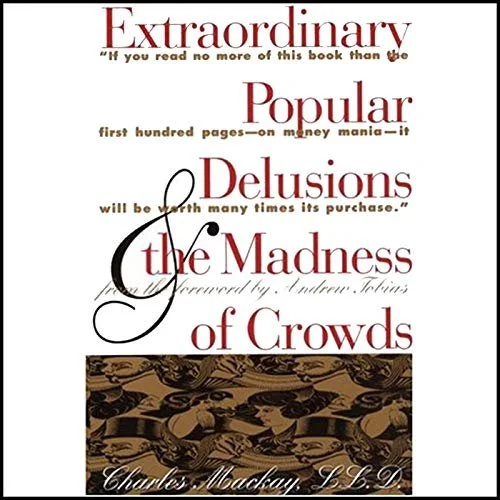Extraordinary Popular Delusions and The Madness Of Crowds & Confusion de Confusiones
Extraordinary Popular Delusions and The Madness of Crowds by Charles Mackay is a book I’ve heard of numerous times but never got round to reading. However, when I found it available as part of my Audible subscription, I thought I’d take the opportunity to listen. The book is actually a combination of Popular Delusions and Confusion de Confusiones (translates to Confusion of Confusions) Both make a natural pair due to the similar themes of the book and combined are just shy of 8 hours so around the mid length range depending on what you’re used to.
Both books have a different approach of viewing how irrationality can take over senses when the enthusiasm for making money and profits through trading sets in. The latter of the two is a fictional narrative of a trading exuberance and irrational behaviour whereas Extraordinary Madness focuses on the retelling of economic events that took place. What’s startling about listening to both of these is that they could have been written yesterday however were authored in 1841 and 1688 respectively. Not only are the scenarios outlined eerily familiar to stock market bubbles and the accompanying irrational risk taking of recent decades but the language used is just as at home.
You leave the reading of these bookings with a strong sense that you’ll never again hear the term ‘history doesn’t repeat but often rhymes’ in reference to financial events without realising how true and far reaching back that statement is. For anyone who has any interest or partakes in investing or speculation this is a fascinating example of how regardless of how smart you may feel in the moment, even going back centuries people fell prey to the delusions of crowds in the pursuit of money. It serves as both an enlightening read and a stern reminder of how history repeats as far as bubbles and busts.
Given the length and similar sentiment reading either or would probably be sufficient if you’re pressed for time or can pick up one individually. It’s definitely worthwhile reading even if the nature of the topic is more appropriately suited to a specific audience. Speaking of which…
Who’s it for?
For those of a curious nature in general this could be one for you but I think it’s better suited for both financial professionals as well as people with either an interest or active pursuit in investing. The lessons covered serve as timeless on the warnings to keep an eye out for when mania takes hold of the crowd. Being aware of the fact that the story of people losing their rational minds to pursuit of profit and speculation goes back centuries can help to ground you when thinking that you’re above it yourself. Those who don’t learn from the past are destined to repeat it!

